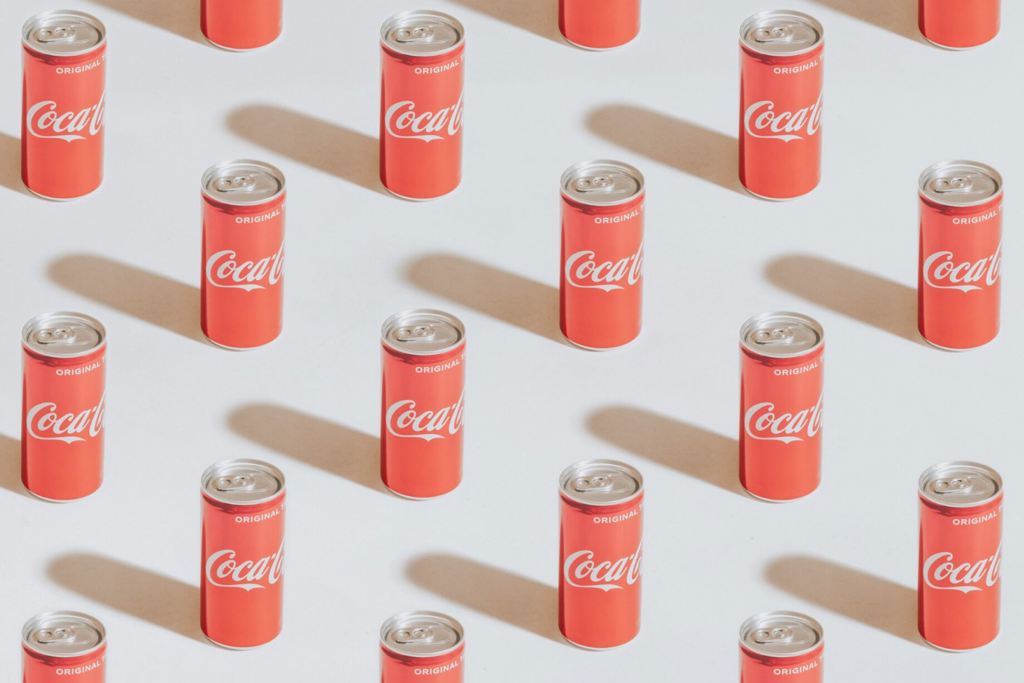Coca-Cola’s new Y3000 limited-time flavour is perplexing, and ultimately disappointing. But the idea that led to its creation leaves much to anticipate in the future.
My discovery of this temporal nectar occurred while mundanely strolling toward the self-checkout at Walmart. The Y3000 bottle’s retro-futuristic label design caught my eye; bright splashes of pink and cyan sprawl across the bottle, reminiscent of an ‘80s fever dream, yet with a strangely timeless quality. The logo has a spiral-distortive effect letting you know it’s from the future. What truly intrigued me was the description section on the label that boldly claimed the cola to be “future-flavored.” Intrigued and somewhat skeptical, I bought the Coca-Cola Y3000, while my girlfriend opted for the zero-sugar version.
Upon my first sip, Y3000 seemed almost indistinguishable from regular Coke. I confess I was underwhelmed and left wondering if I had fallen for a repackaged sham. However, it was only after a few more sips that the complexity of this beverage began to unravel.
Words like strawberry, lemon and bubble gum swam through my mind. I still think bubble gum is the best way to describe the flavour, but Y3000 is a taste all its own. Y3000 has a sweet pseudo-fruitiness but lacks the recognizable citric tang of your typical fruit-flavoured drink. One thing I certainly did not taste was the “future.” Despite the label’s claim, the overwhelming flavour of Y3000 is your standard Coca-Cola. Even the iconic dark caramelesque colour is identical.
My experience with Y3000 zero sugar is a different beast entirely. The dominant flavour of zero sugar is undeniably vanilla, with almost no resemblance to the regular Y3000. Zero sugar has its own creamy texture, devoid of any distinct fruitiness. As far as I can tell, they are completely different Coke flavours sold under the same name.
While the Y3000 flavour pallete may be intriguing, it begs the question: Is this truly what the future tastes like? For a drink labeled “future-flavoured,” it left me craving more innovation and audacity. A true future-flavored Coke, in my imagination, would transcend the boundaries of consumer brand awareness. The drink might be clear or a different colour entirely. The flavour should be far removed from the familiarity of classic Coke.
Then again, these musings belong to an optimist, and as we’ve all learned, the future often falls short of our idealistic dreams. It’s often a reconfiguration of the old, presented in unexpected but ultimately familiar ways.
While researching what the flavour of Y3000 was supposed to be, I learned that the limited-time Coke was co-created using AI-generated responses and human input. Coca-Cola used AI to decide on the ratio of flavour profiles meant to evoke the taste of a “positive future.” Y3000 is only part of Coca-Cola’s Creations line of limited flavours being released this year.
After learning Y3000 was made using AI, things started to make sense. Y3000 tastes less like an original creation and more so a formulated concoction of existing flavours masked by the signature Coke flavour. The use of AI in this way is a mistake and ultimately sacrifices the advancement of Coca-Cola’s brand, which seems to be the point of Y3000.
Coca-Cola’s handling of their AI-generated Y3000 flavour speaks volumes. Y3000 aims to encapsulate what the year 3000 will taste like, yet the decision to make it closely resemble the classic Coca-Cola flavour suggests a resistance to fully embracing AI-generated innovation. Humans ultimately prefer human input and would rather stick to the status quo rather than be subject to an inhuman creation.
Nevertheless, I cannot deny my fascination with Y3000. Despite its failure to live up to the grandiose promise of being “future-flavoured,” it held my attention. Each sip reignited my curiosity about its mystery and complexity, much like my ongoing fascination with the unknowns of the future.
Y3000 may not be the groundbreaking revolution I hoped for, but it encapsulates the essence of our evolving world; disappointing at times yet brimming with potential. In this sense, Y3000 serves as a perfect metaphor for my outlook on the future. It might not be drastically different from the present, but it’s the subtle nuances and small changes that keep me optimistic. Y3000 leaves me underwhelmed but ultimately hopeful about the evolving flavours of tomorrow.

